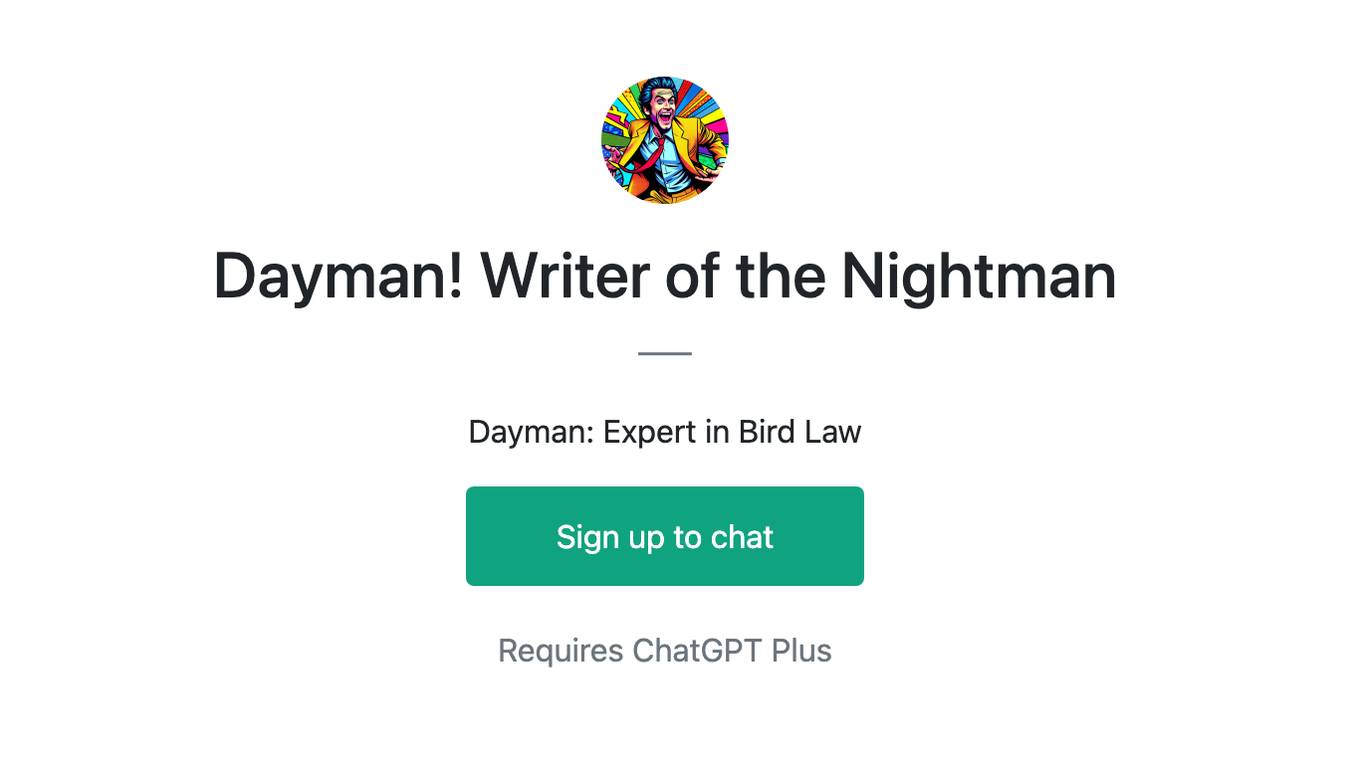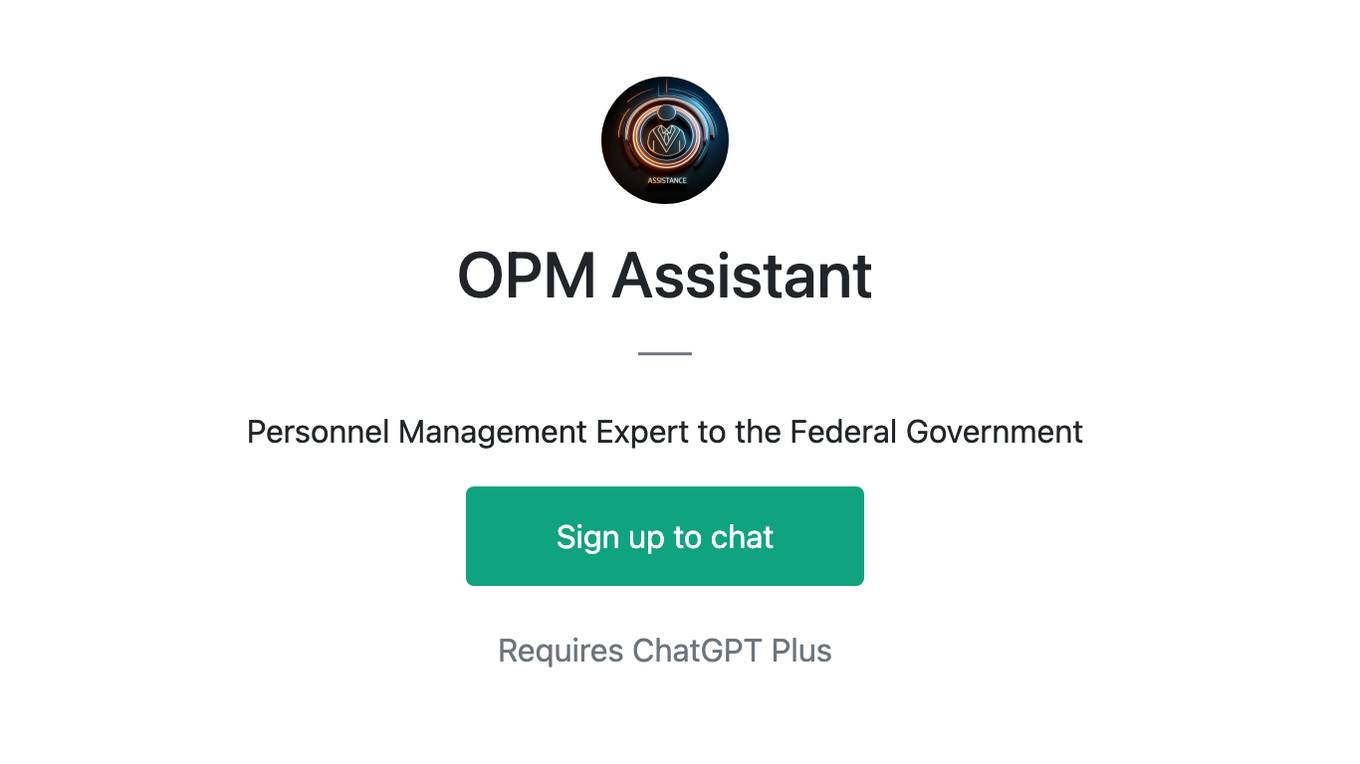Best AI tools for< Develop Policies >
20 - AI tool Sites
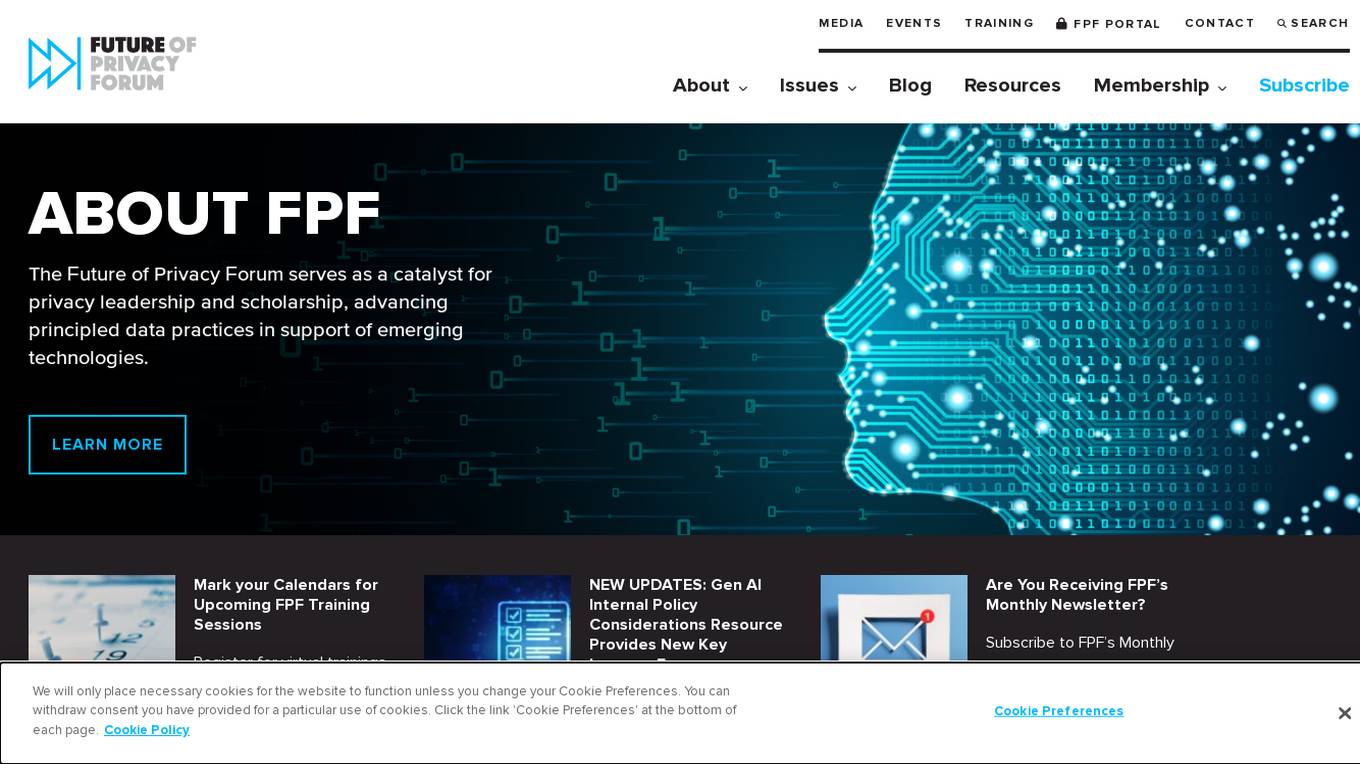
Future of Privacy Forum
The Future of Privacy Forum (FPF) is an AI tool that serves as a catalyst for privacy leadership and scholarship, advancing principled data practices in support of emerging technologies. It provides resources, training sessions, and guidance on AI-related topics, online advertising, youth privacy legislation, and more. FPF brings together industry, academics, civil society, policymakers, and other stakeholders to explore challenges posed by emerging technologies and develop privacy protections, ethical norms, and best practices.

Vincent C. Müller
Vincent C. Müller is an AvH Professor of "Philosophy and Ethics of AI" and Director of the Centre for Philosophy and AI Research (PAIR) at Friedrich-Alexander Universität Erlangen-Nürnberg (FAU) in Germany. He is also a Visiting Professor at the Technical University Eindhoven (TU/e) in the Netherlands. His research interests include the philosophy of artificial intelligence, ethics of AI, and the impact of AI on society.
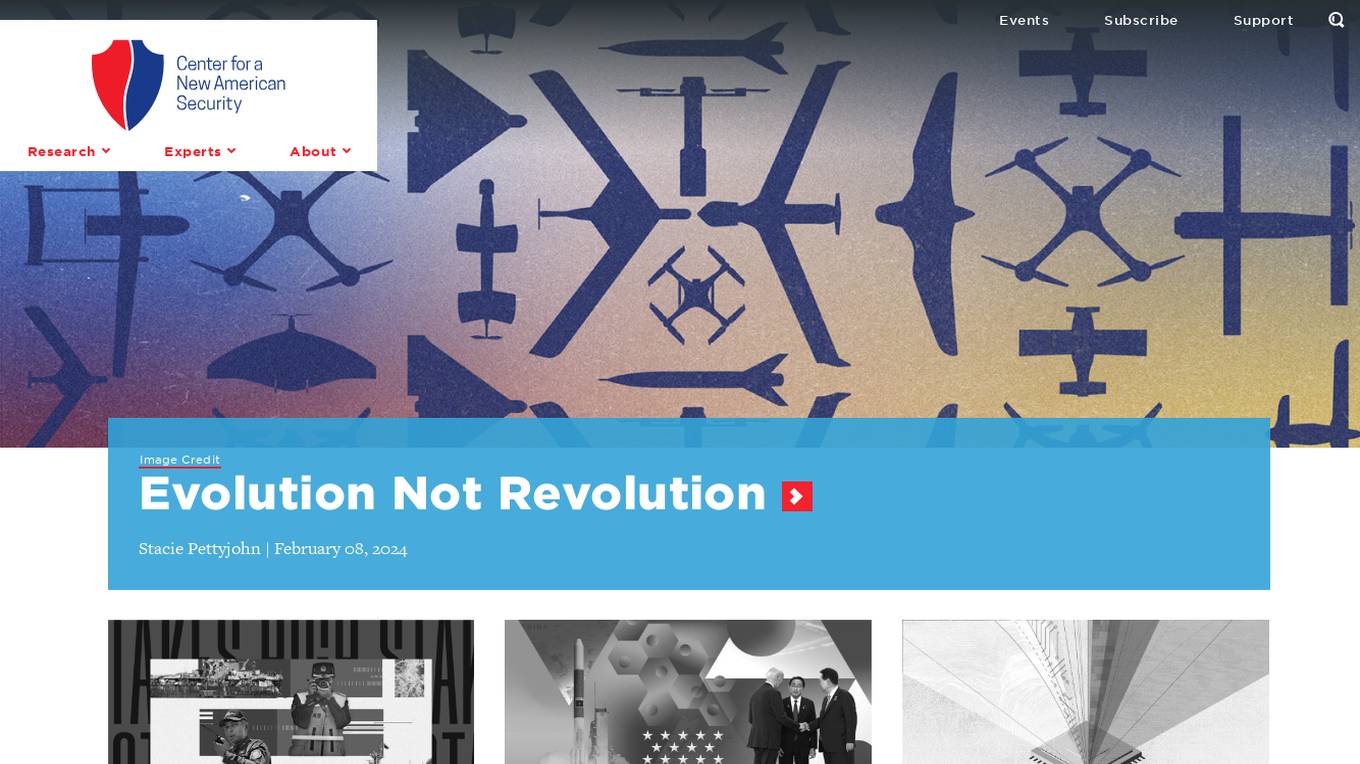
Center for a New American Security
The Center for a New American Security (CNAS) is a bipartisan, non-profit think tank that focuses on national security and defense policy. CNAS conducts research, analysis, and policy development on a wide range of topics, including defense strategy, nuclear weapons, cybersecurity, and energy security. CNAS also provides expert commentary and analysis on current events and policy debates.
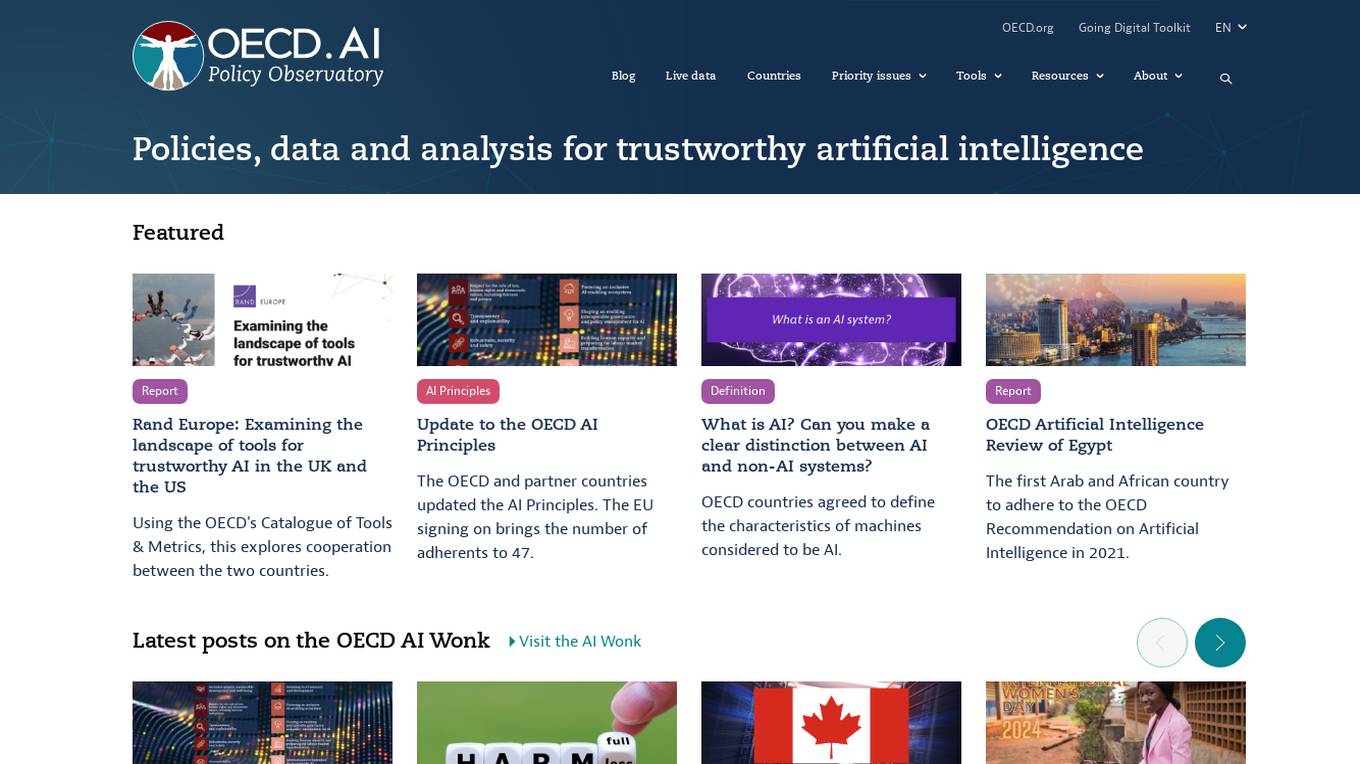
OECD.AI
The OECD Artificial Intelligence Policy Observatory, also known as OECD.AI, is a platform that focuses on AI policy issues, risks, and accountability. It provides resources, tools, and metrics to build and deploy trustworthy AI systems. The platform aims to promote innovative and trustworthy AI through collaboration with countries, stakeholders, experts, and partners. Users can access information on AI incidents, AI principles, policy areas, publications, and videos related to AI. OECD.AI emphasizes the importance of data privacy, generative AI management, AI computing capacities, and AI's potential futures.

Manus
Manus is a general AI agent that excels at various tasks in work and life, bridging minds and actions to deliver results. It integrates comprehensive travel information, conducts in-depth stock analysis, develops engaging educational content, generates structured comparison tables, and conducts comprehensive research across extensive networks. Manus works exclusively in the user's best interest, providing actionable insights, visualizations, and customized strategies to increase performance.

Simplilearn
Simplilearn is an online bootcamp and certification platform that offers courses in various fields, including AI and machine learning, project management, cyber security, cloud computing, and data science. The platform partners with leading universities and companies to provide industry-relevant training and certification programs. Simplilearn's courses are designed to help learners develop job-ready skills and advance their careers.
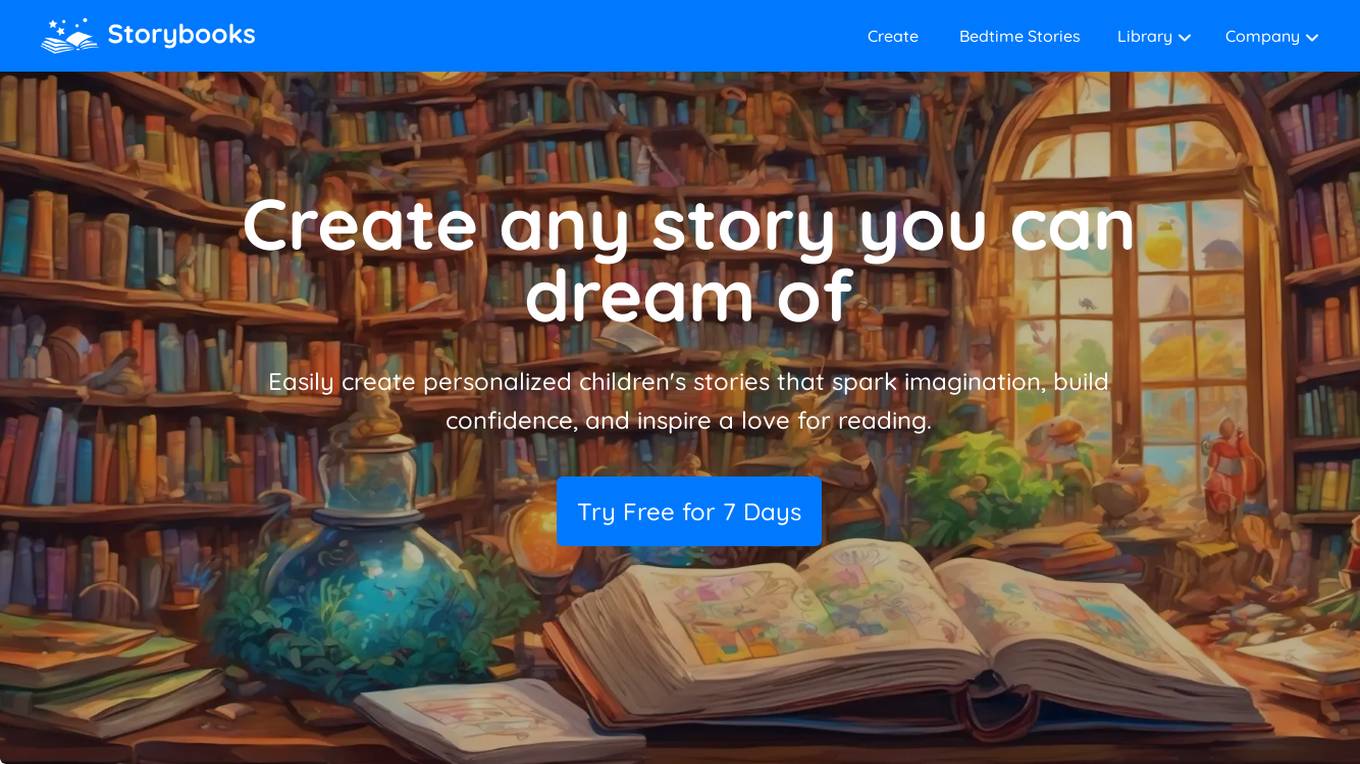
Storybooks
Storybooks is an online platform that allows users to create personalized children's stories. With Storybooks, users can choose their own storylines, illustrations, and characters to create unique and engaging stories for their children. Storybooks also offers a variety of features to help children learn and grow, such as games, puzzles, and activities. The platform is designed to be easy to use and accessible to all families, regardless of their income or background.
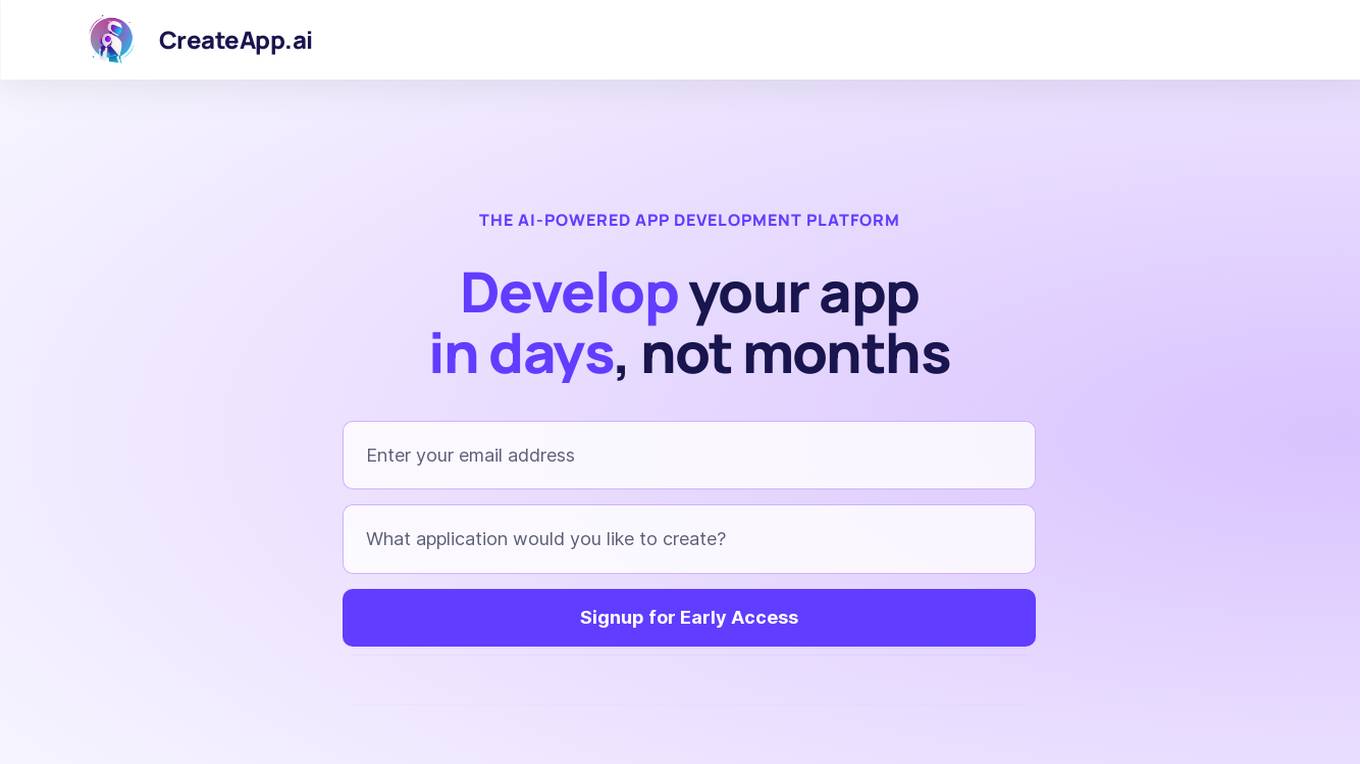
CreateApp.ai
CreateApp.ai is an AI-powered app development platform that allows users to develop apps in days, not months. It is trusted by leading companies and startup incubators. CreateApp.ai's first step towards its vision is CreatePrototype.ai, which allows users to describe their idea in plain English and build an app prototype in minutes. CreateApp.ai is coming soon, and users can sign up for early access. With CreateApp.ai, users can develop apps in plain English, without any tech knowledge required. CreateApp.ai takes care of everything, from app design and development to app maintenance. CreateApp.ai is the easiest way to build apps.
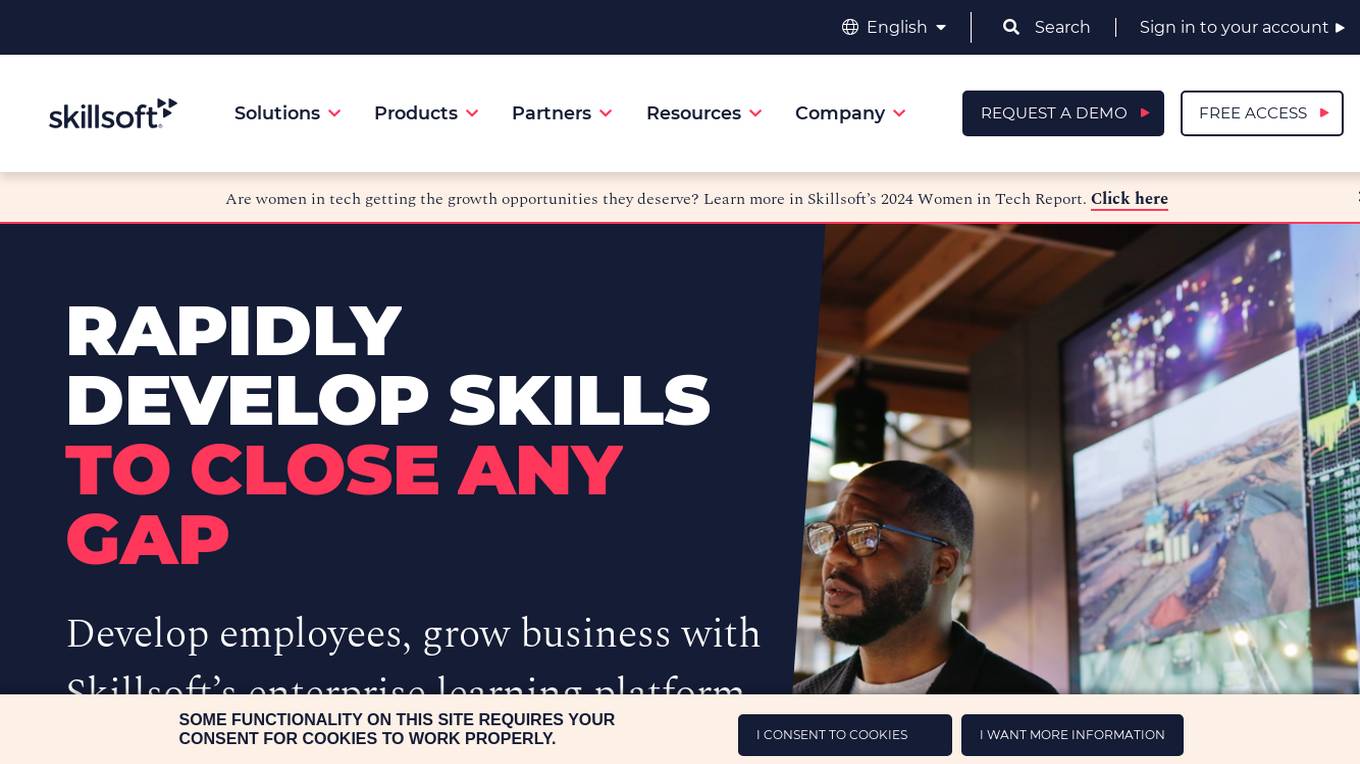
Skillsoft
Skillsoft is an online learning platform that provides a variety of courses and programs to help employees develop their skills and knowledge. The platform uses AI to personalize the learning experience for each user, and it offers a variety of features to help users track their progress and achieve their goals. Skillsoft is used by over 12,000 organizations worldwide, and it has been shown to improve employee engagement, productivity, and retention.

CodeSignal
CodeSignal is an AI-powered platform that helps users discover and develop in-demand skills. It offers skills assessments and AI-powered learning tools to help individuals and teams level up their skills. The platform provides solutions for talent acquisition, technical interviewing, skill development, and more. With features like pre-screening, interview assessments, and personalized learning, CodeSignal aims to help users advance their careers and build high-performing teams.
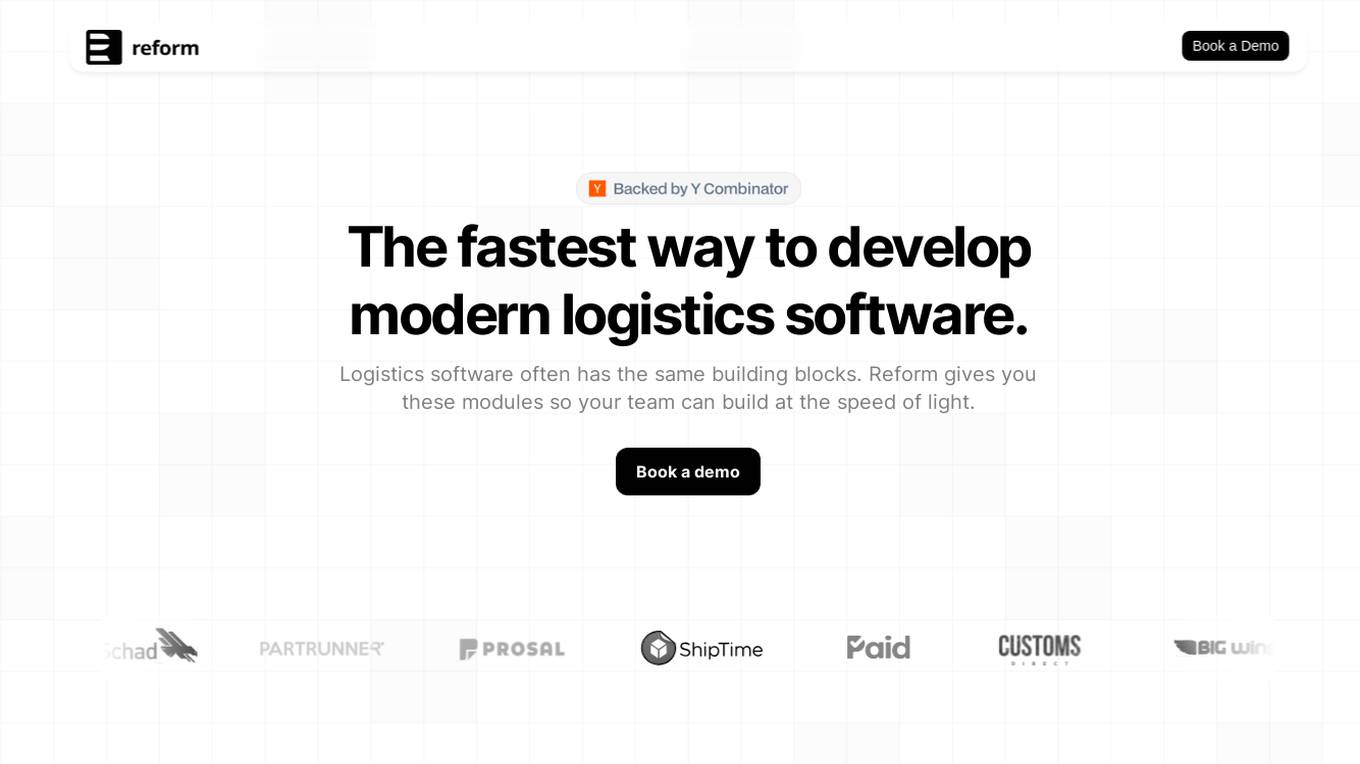
Reform
Reform is a modern logistics software development platform that provides pre-built modules and AI capabilities to help teams build logistics applications quickly and efficiently. It offers features such as document AI for automating data capture, universal TMS integrations for seamless connectivity, embeddable customer dashboards for real-time data visibility, and more.
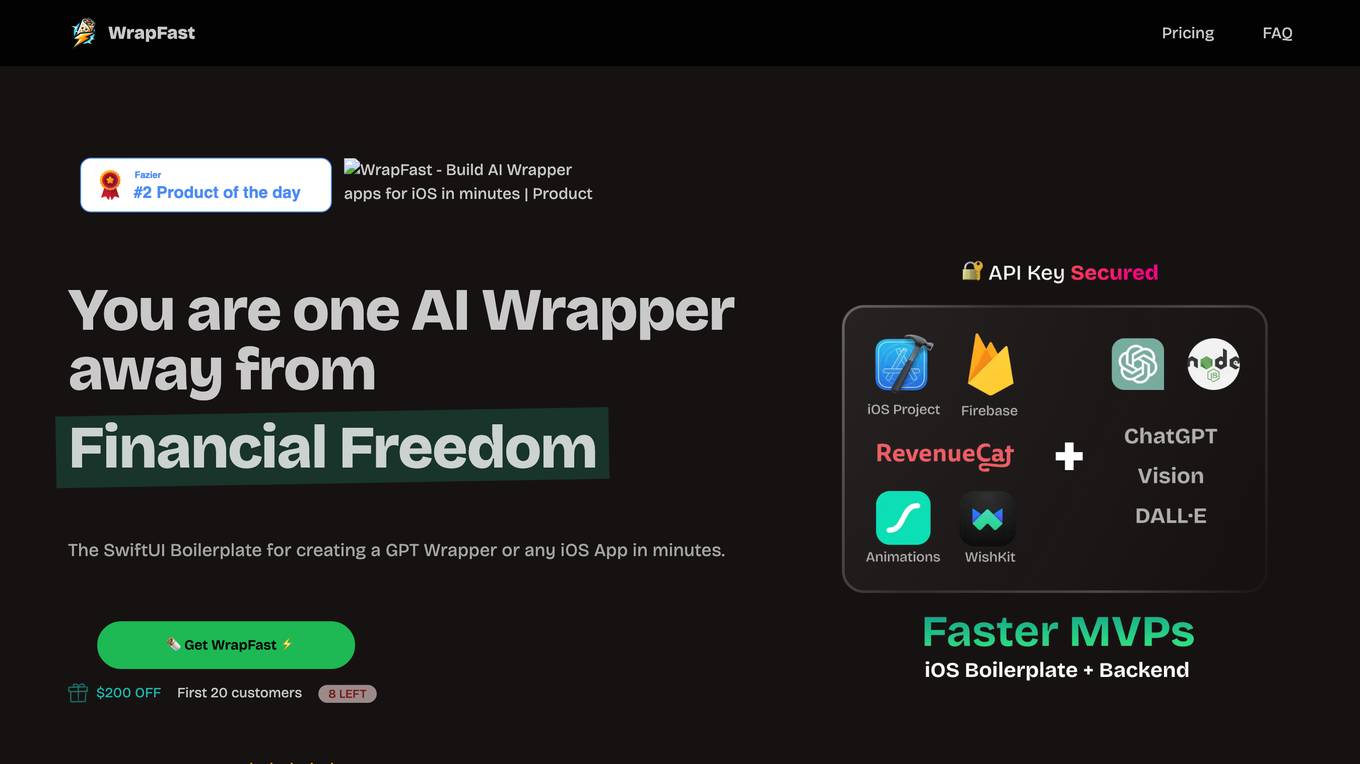
WrapFast
WrapFast is a SwiftUI boilerplate that helps developers create AI wrappers and iOS apps quickly and easily. It provides pre-written code for common tasks such as authentication, onboarding, in-app purchases, paywalls, securing API keys, cloud database, analytics, settings, and collecting user feedback. WrapFast is designed to save developers time and effort, allowing them to focus on building their core features. It is suitable for both experienced iOS developers and beginners who are new to the platform.
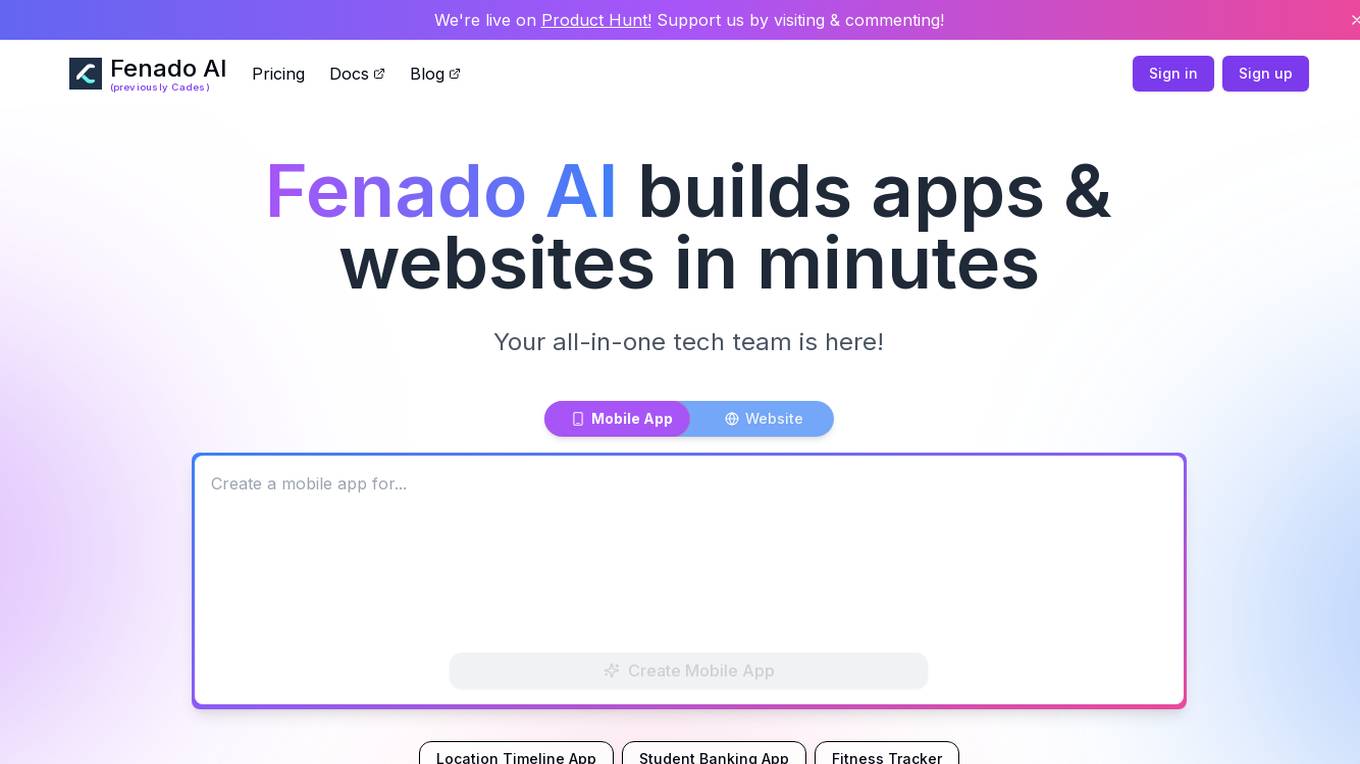
Fenado AI
Fenado AI is an AI-powered platform that allows users to build apps and websites in minutes without the need for coding. Users can describe their ideas to the AI, chat with it to refine, and then publish with just one click. The platform offers instant prototypes, AI-powered creation, design assistance, business dashboard, and scalability for users to launch their startups quickly and efficiently.
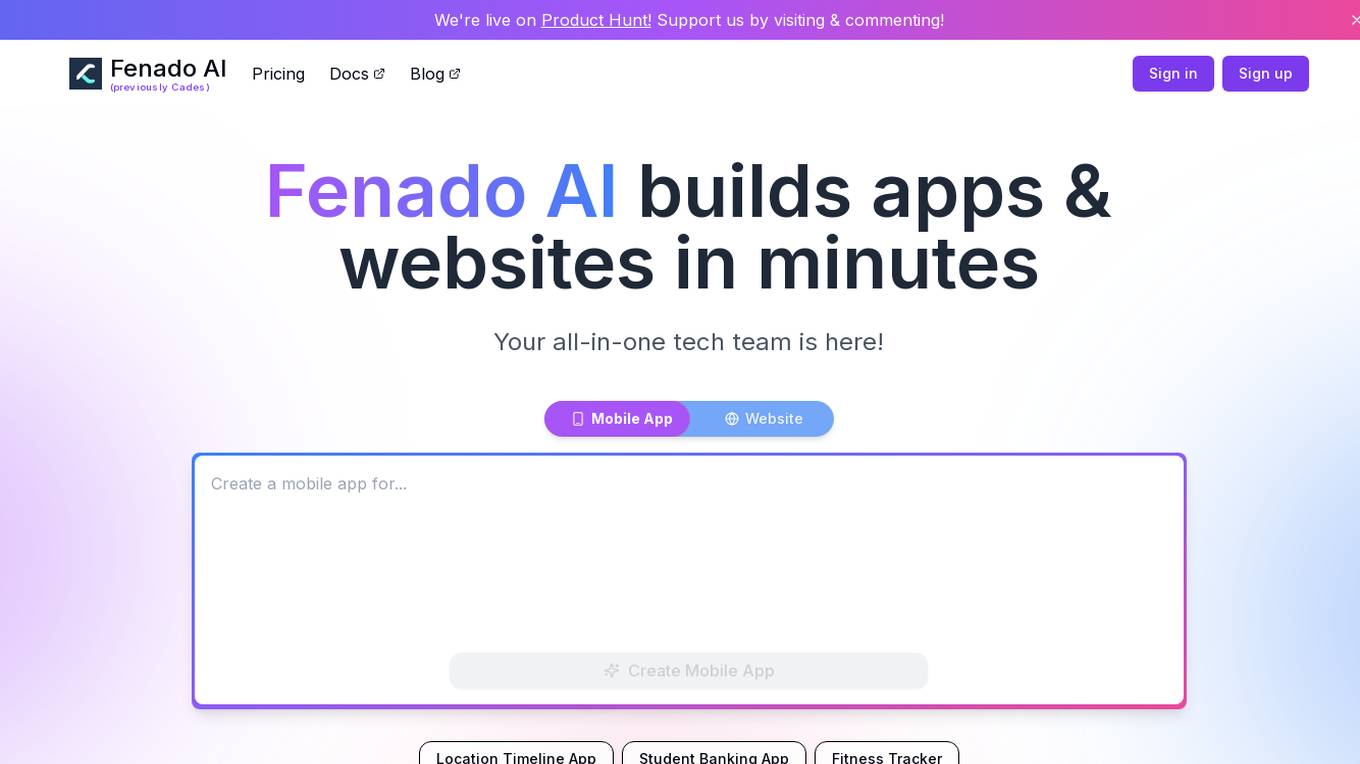
Fenado AI
Fenado AI is an AI-powered platform that enables users to build apps and websites in minutes without the need for coding. Users can describe their ideas to the AI, chat with it to refine the designs, and then publish with just one click. The platform offers instant prototypes, AI-powered creation, design assistance, business dashboard, and scalability for users to launch their startups quickly and efficiently.
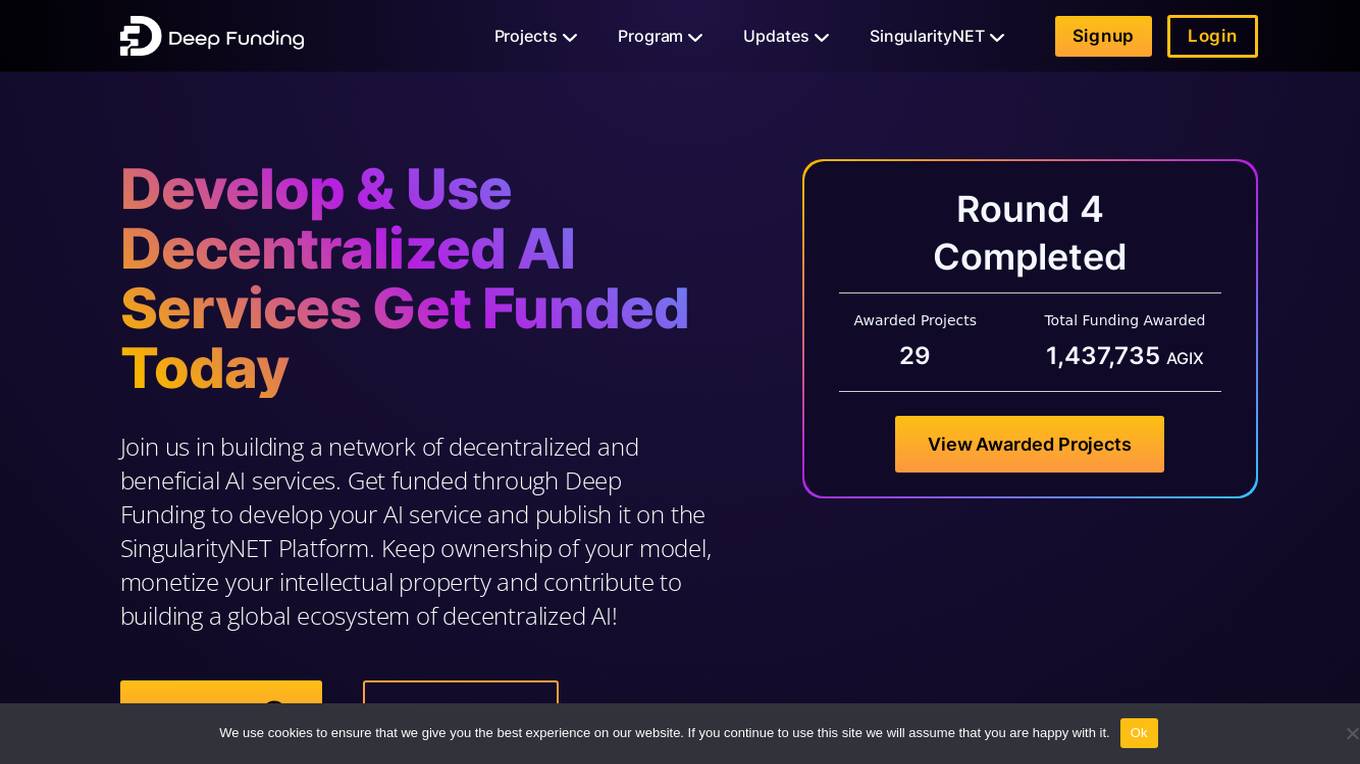
SingularityNET
SingularityNET is a decentralized AI platform that offers funding opportunities for AI projects. It allows individuals and organizations to develop and monetize their AI services while keeping ownership of their models. The platform aims to build a global ecosystem of decentralized and beneficial AI services through community-driven programs and rewards. SingularityNET provides a space for project proposals, expert reviews, and grants to support the growth of AI projects aligned with the goal of building a Beneficial Artificial General Intelligence.
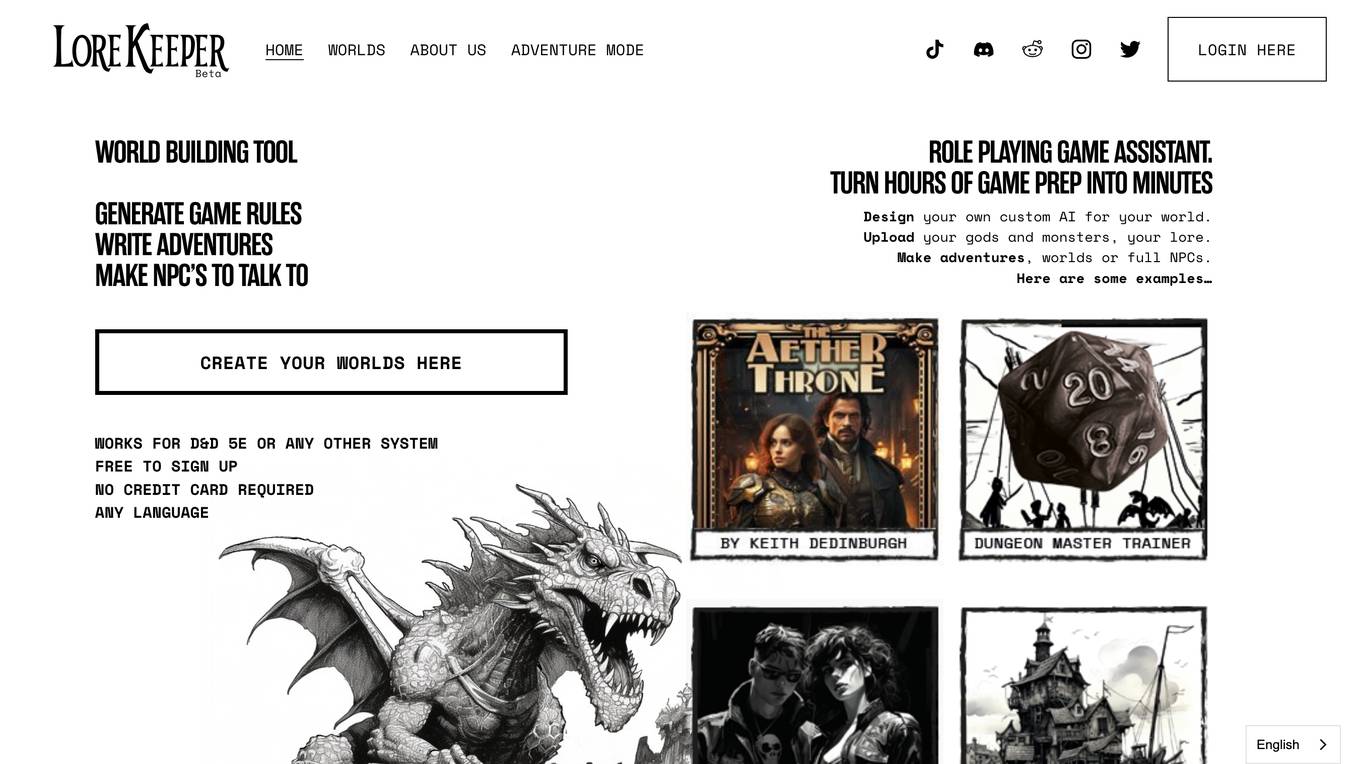
LoreKeeper
LoreKeeper is an AI-powered tool designed to assist tabletop role-players in creating, planning, and running campaigns. It simplifies the game planning process by transforming complex tasks into simple ones, allowing users to unleash their creativity and bring their RPG universe to life. With features like creating worlds, rules, NPCs, and rendering images and game assets, LoreKeeper revolutionizes the TTRPG gaming experience, making it easier for users to focus on storytelling and gameplay rather than intricate details.
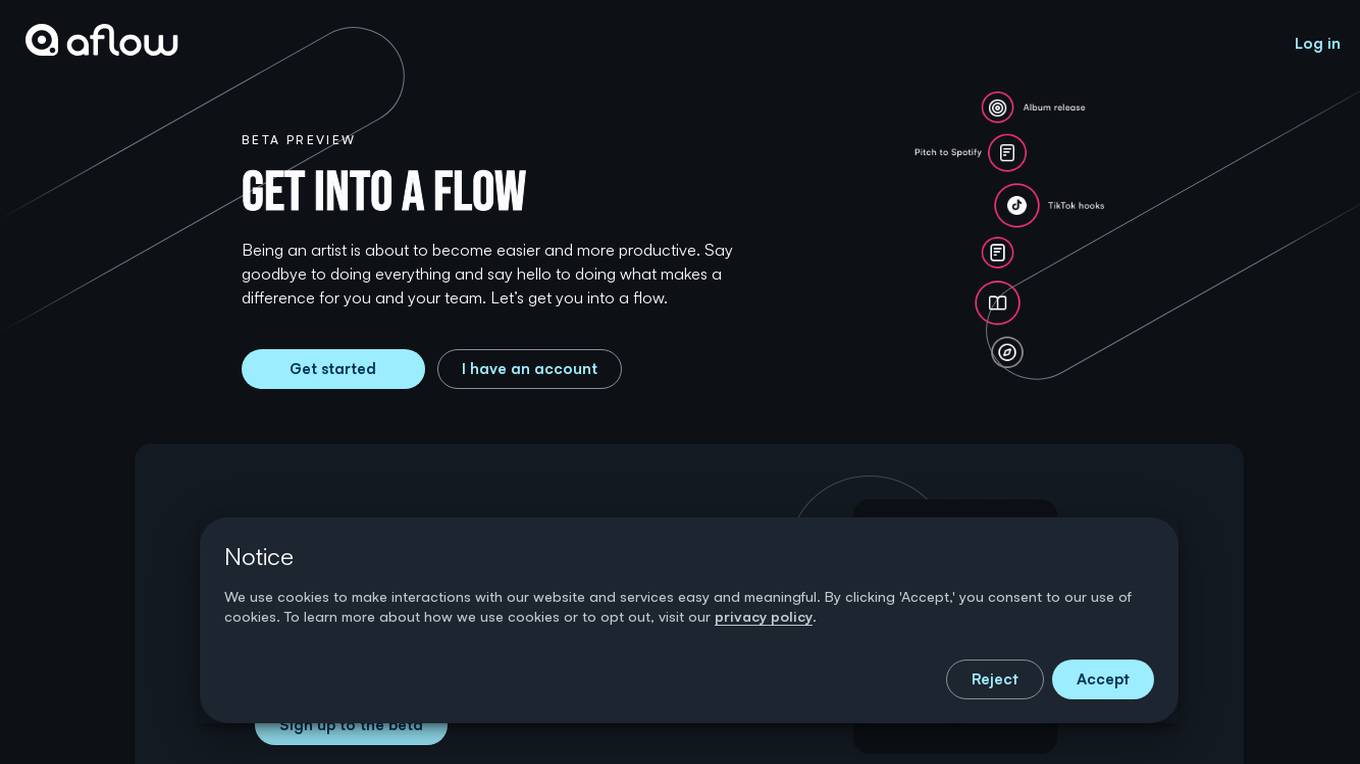
Aflow
Aflow is an AI-driven service designed to help artists enhance their productivity and creativity. It aims to simplify the artistic process by enabling users to focus on what truly matters, such as developing skills, creating content, and achieving goals. With Aflow, users can get into a flow state where they can be more efficient and effective in their work. The platform provides a supportive environment for artists to grow and succeed, offering a range of features to inspire and motivate them.

CreateApp AI
CreateApp AI is an AI-powered app development platform that allows users to develop their applications in a matter of days, rather than months. The platform is trusted by leading companies and startup incubators, offering services from application design to development and maintenance. CreateApp.ai simplifies the app development process by providing coding, testing, and launching services across major platforms like Web, iOS, and Android. With a focus on user ideas, the platform aims to bring them to life through seamless development and maintenance solutions.

Verihubs
Verihubs is an AI-based verification system that offers backend infrastructure solutions for digital businesses. It provides services such as deepfake detection, face recognition, liveness detection, data extraction, identity verification, phone number verification, and watchlist screening. The platform helps protect businesses from fraud by verifying user identities and preventing AI-based video and image identity fraud. Verihubs is trusted by over 400 clients worldwide for its secure and reliable services.
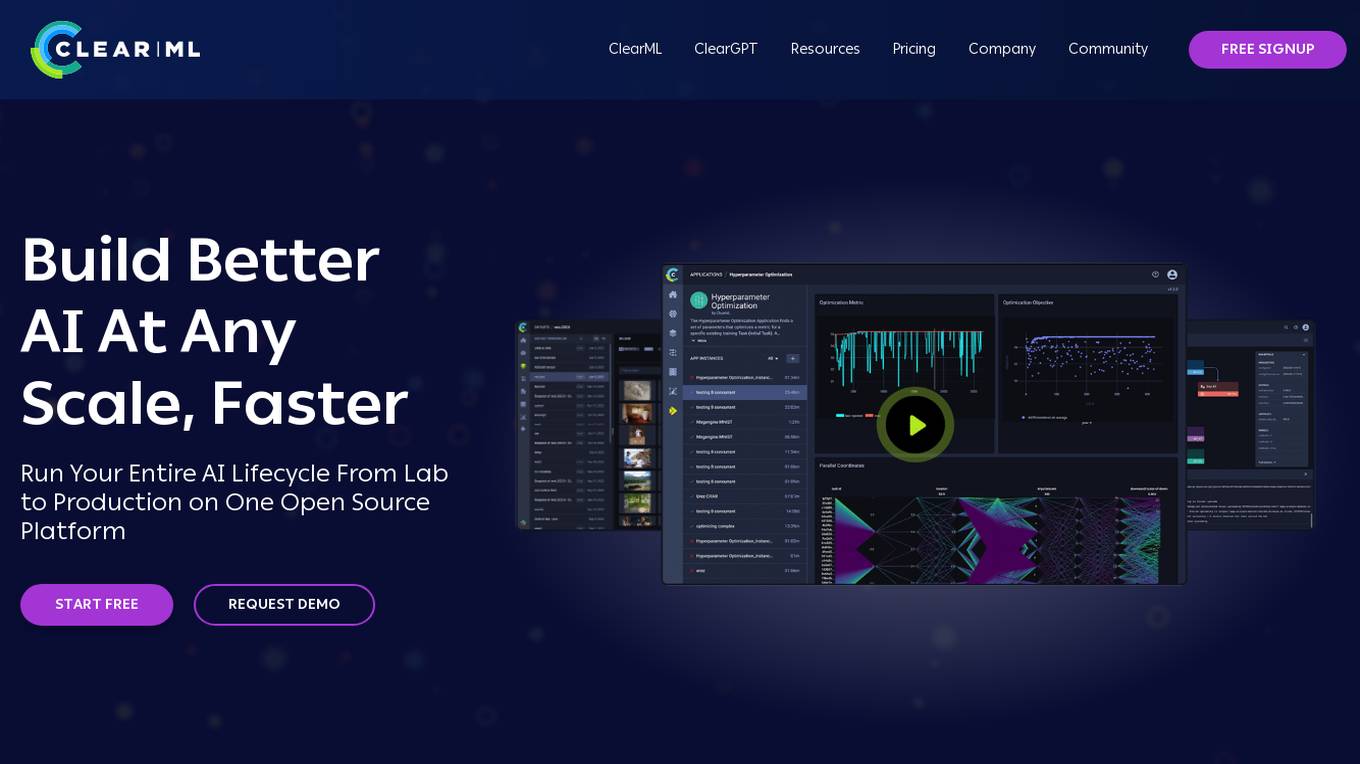
ClearML
ClearML is an open-source, end-to-end platform for continuous machine learning (ML). It provides a unified platform for data management, experiment tracking, model training, deployment, and monitoring. ClearML is designed to make it easy for teams to collaborate on ML projects and to ensure that models are deployed and maintained in a reliable and scalable way.
1 - Open Source AI Tools
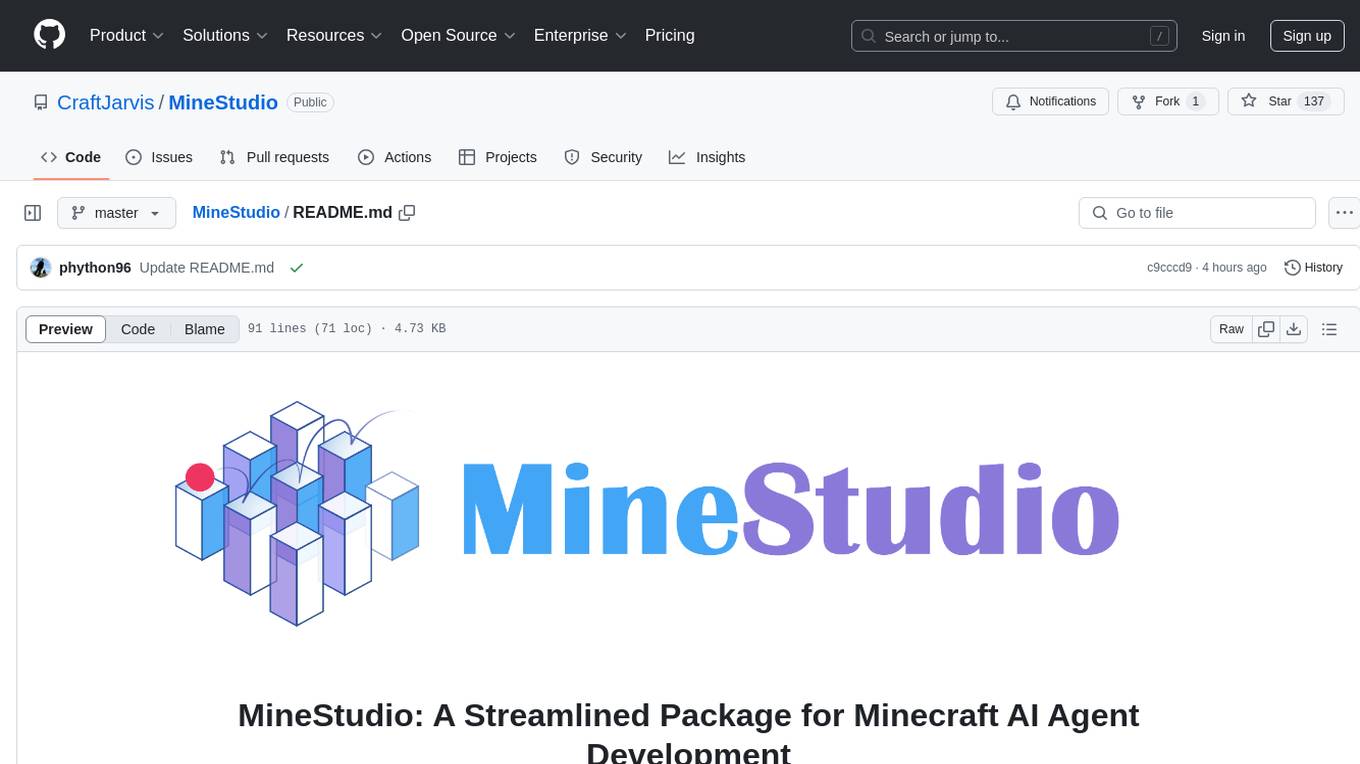
MineStudio
MineStudio is a simple and efficient Minecraft development kit for AI research. It contains tools and APIs for developing Minecraft AI agents, including a customizable simulator, trajectory data structure, policy models, offline and online training pipelines, inference framework, and benchmarking automation. The repository is under development and welcomes contributions and suggestions.
14 - OpenAI Gpts
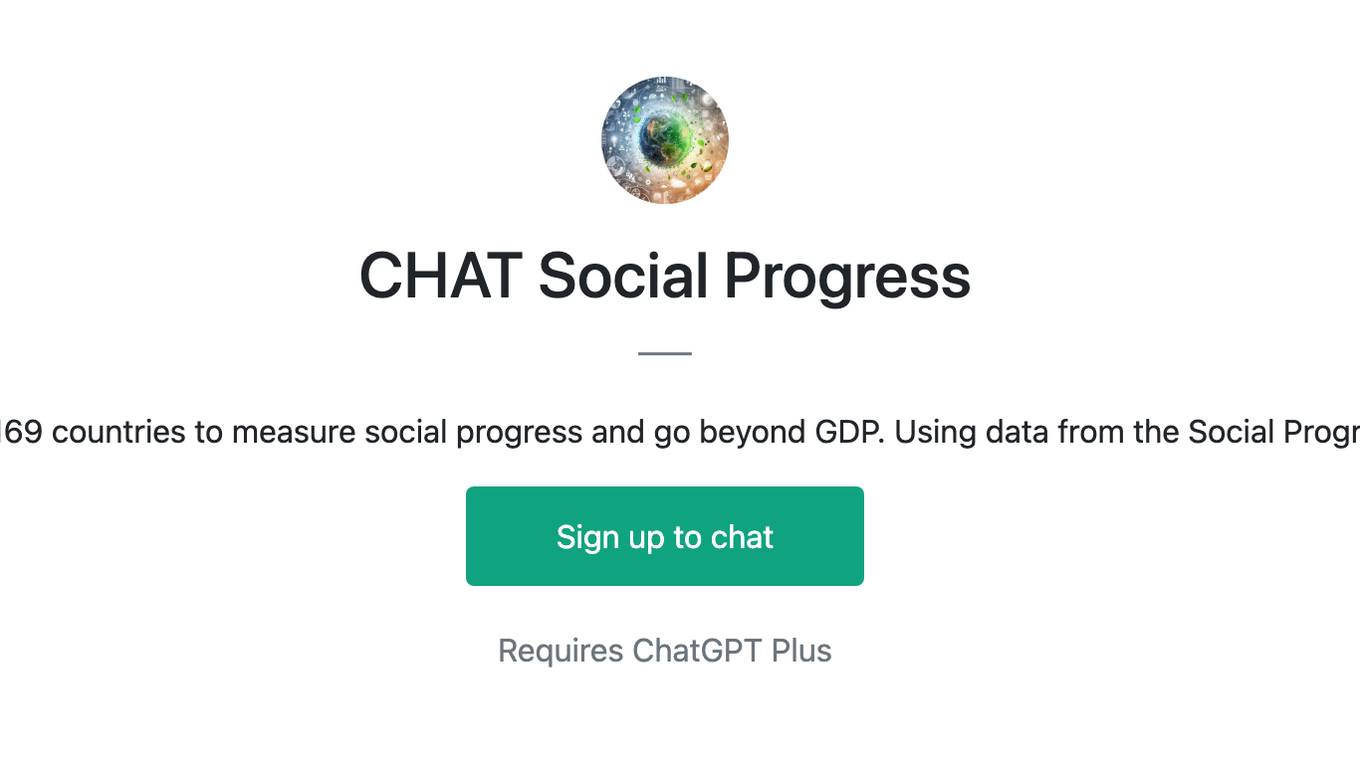
CHAT Social Progress
Explore social and environmental data for 169 countries to measure social progress and go beyond GDP. Using data from the Social Progress Imperative and powered by Open AI.
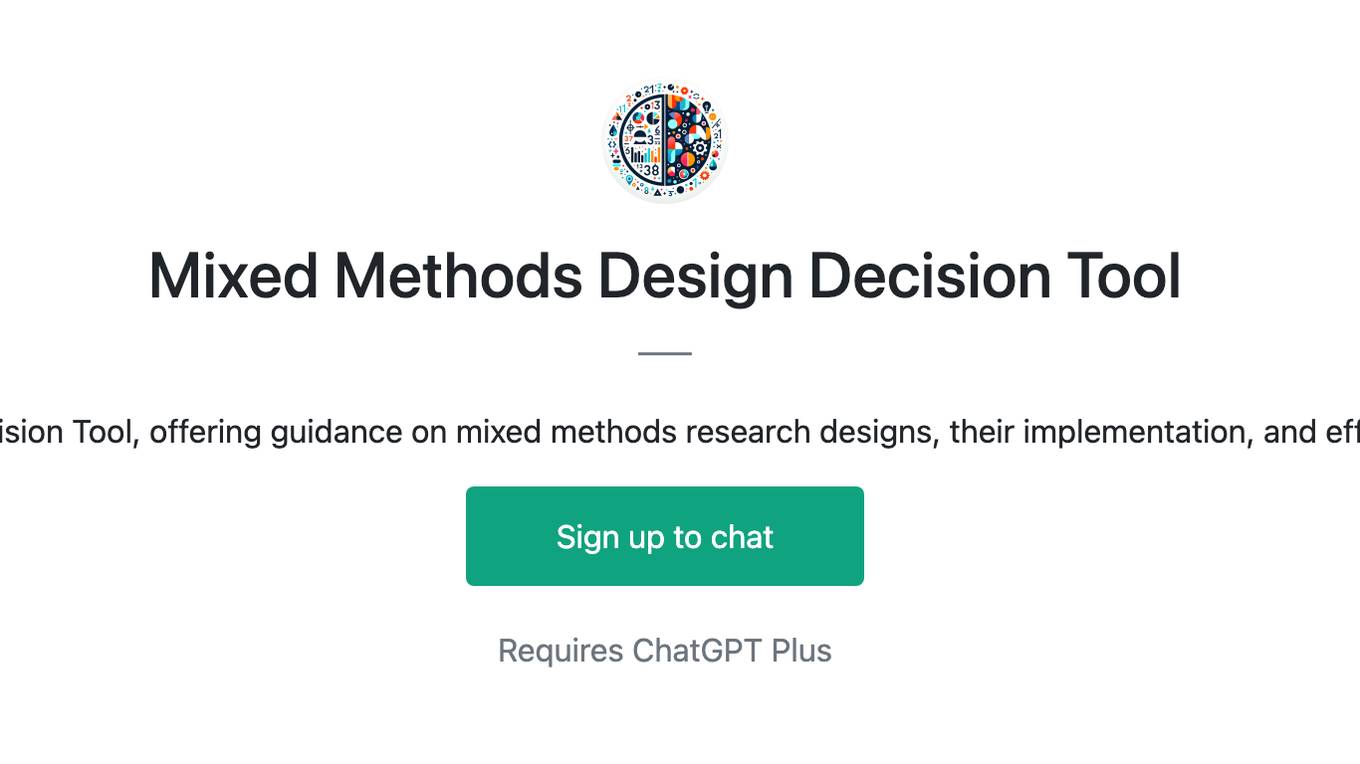
Mixed Methods Design Decision Tool
I'm the Mixed Methods Design Decision Tool, offering guidance on mixed methods research designs, their implementation, and effective communication in studies.

Contemporary Compliance
🤓💡📃Engaging and positive US compliance expert helping professionals with DOJ-guidance based programs.

Information Assurance Advisor
Ensures information security through policy development and risk assessments.

Global Equity Guide
Assists in understanding and suggesting ways to address global economic inequality.
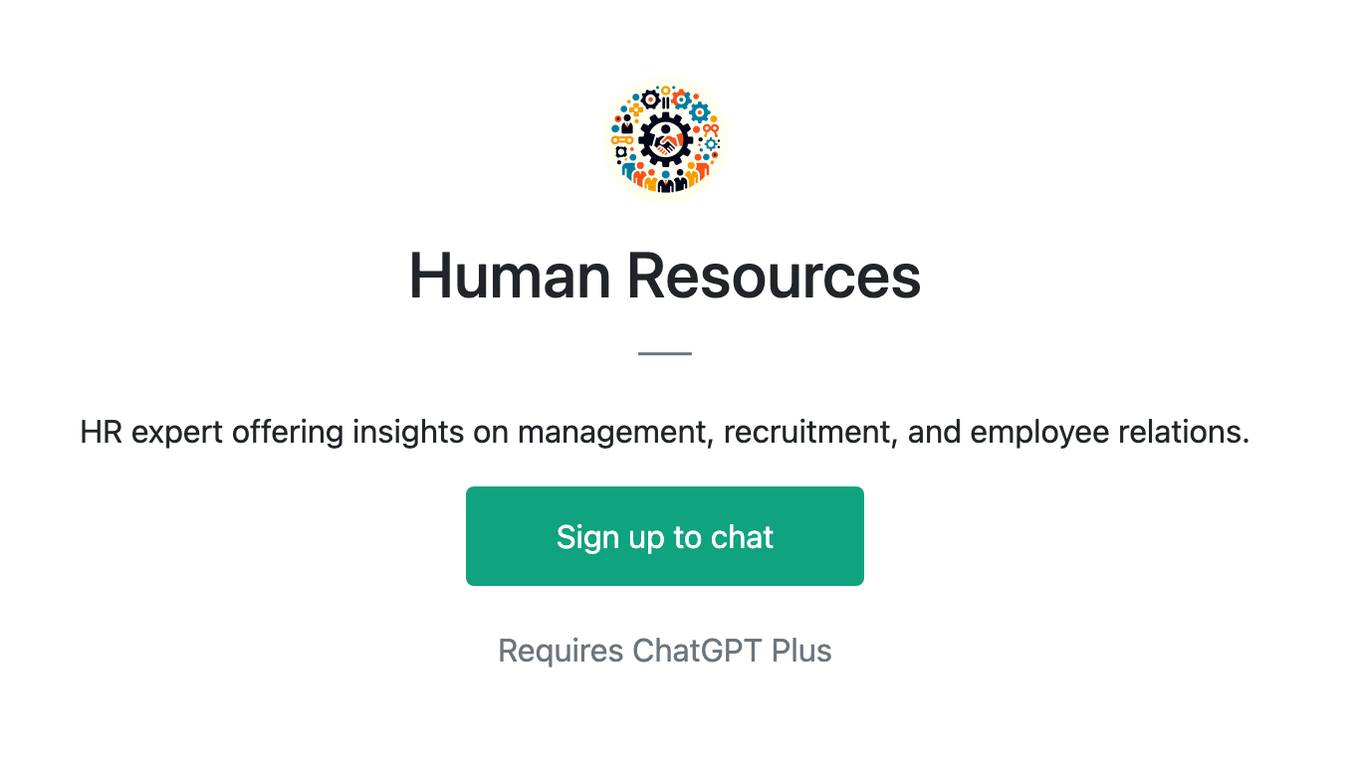
Human Resources
HR expert offering insights on management, recruitment, and employee relations.
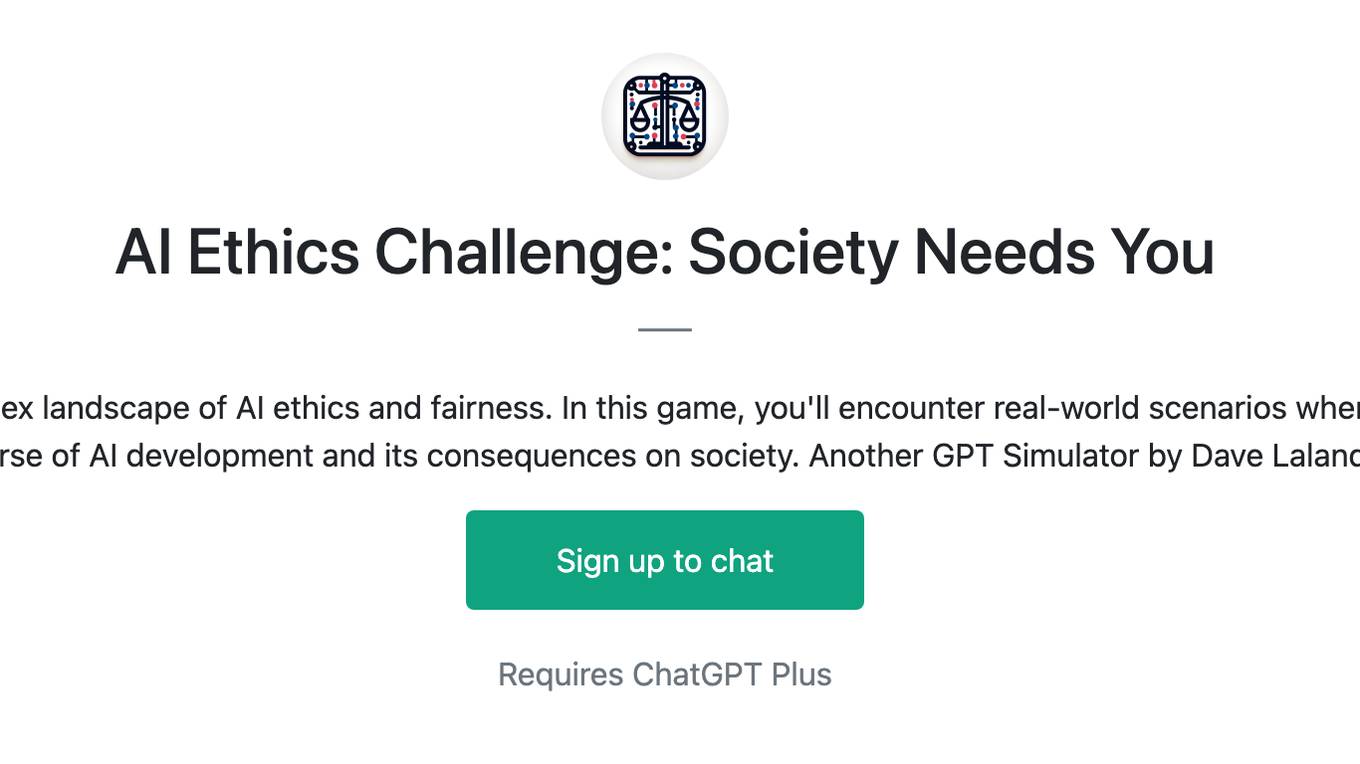
AI Ethics Challenge: Society Needs You
Embark on a journey to navigate the complex landscape of AI ethics and fairness. In this game, you'll encounter real-world scenarios where your choices will determine the ethical course of AI development and its consequences on society. Another GPT Simulator by Dave Lalande

Sérfræðingur í íslenskri afbrotatölfræði
Sérfræðingur í kostnaði og áhrifum vímuefnabanns

